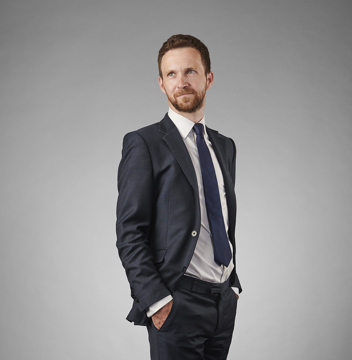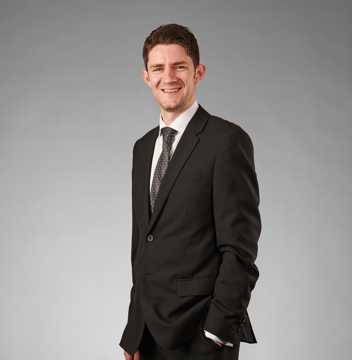
Scotch single malt whisky is famed for its rich golden colour. But can it also be green?
One innovative whisky maker is going to great lengths to ensure its product is.
Bruichladdich distillery is located on the south-western tip of the Hebridean island of Islay.
In 2001 it re-opened after seven years of closure – and under its new ownership has been on a journey to ensure sustainability is a key ingredient in the unique recipe for its liquid gold.
Douglas Taylor, CEO of Bruichladdich, joined the business as commercial director in 2011. In 2017 he stepped up to the role of CEO.
Here he explains to Neil Bruce and Peter Ward, partners in Burness Paull’s Energy team, why Bruichladdich places such a premium on sustainability within its work.
Bruichladdich has a very distinct image, can you tell us a little bit about how it got to where it is today?
“Mothballed by previous owners, the distillery company was resurrected in 2001 by two former wine merchants, a distilling legend and a group of independent investors.
“From the beginning they were very clear that the company should be wholly based on Islay, ‘local’ would come first. Not just employing local people but sourcing as many ingredients and goods as possible on Islay.
“The idea was to conceive, distil, mature and bottle Bruichladdich whisky on the island, with authenticity, provenance and terroir at the heart.
“In 2004 the company started to engage with Islay farmers to grow barley for production, which was the first time this had happened, since before the war.
“The driving force for this was of course the pursuit of terroir and flavour, but it was to have huge positive implications for the local economy – Bruichladdich effectively supported agricultural farming on Islay and created employment in the process.
“To put it into context, without this initiative from the distillery, it’s probable agricultural farming on Islay could have disappeared entirely.
“Beyond farming, with our distilling, maturation and bottling facilities all on Islay, Bruichladdich is (and has been for almost 10 years) the biggest private employer on the island, which is incredible to think, given the number of other distilleries on the island.”
Has sustainability always been at the heart of the business, or is it a more recent shift?
“A lot of projects today are ‘born green’, but it can be a harder transition for larger established (in our case Victorian) operations to fully embrace the sustainability challenge.
“Our earliest foray into renewable energy began as early as 2010. We installed an anaerobic digestion plant which we hoped would be both innovative and a huge success. However, for a whole host of reasons, it ended up being very expensive and inefficient / ineffective - so we had to write it off and go back to the drawing board. We would go on to consider more than a dozen different green energy options in the years that followed.
“In 2019, live on air on BBC Radio Scotland, I ‘declared’ we would decarbonise distilling operations (scope 1& 2) by 2025.
“There was a lot of surprise with that commitment - both inside the company and externally - but it was to be a turning point for our sustainable energy mission, in terms of making us work harder to find solutions and it held us accountable!
“It certainly opened up some interesting conversations, and we ended up partnering with ITP Energised to scope out the possibilities that were open to us and most likely to be successful.
“This culminated in us applying for the UK Government’s ‘Green Distilleries Competition’, which is focused on testing and developing cutting edge renewable energy tech in the distilling sector. Technologies that were unproven but transferable and scalable.
“We were successful in the Phase 1 applications and were awarded around £70k to fund a feasibility study on hydrogen combustion in the production of whisky, this remains ‘work in progress’, but is evidence of the very exciting thinking going on here at Bruichladdich (and indeed right across the sector just now).
“Of course sustainability is not just about energy. Social sustainability is also part of our agenda.”
The parent company of Bruichladdich is global drinks brand Remy Cointreau, how much input does it have in the distillery’s sustainability work?
“We have been very lucky. Remy Cointreau places ‘Responsible Growth’ at the centre of its global strategy and we are 100% supported on our sustainability mission.
“The Group has social and environmental initiatives underway all over the world and has declared a series of stretching targets over the next 30 years.
“The whole senior team at Bruichladdich and in Remy Cointreau are committed to our global climate action plan.”
Which sustainability initiatives at Bruichladdich are you most proud of?
“Certainly things like the Hydrogen project, but also The Botanist Foundation (est 2015) and our One Tin Lighter campaign (launched 2021). The one I’m most proud of and possibly one of the most ambitious though, was our journey to become B Corp certified.
“On a trip to New York in 2016 or 2017, I got talking to someone about B Corp and it really spiked my interest. It sounded like the way we ran our company was very much the way B Corp businesses ran and if we could demonstrate this successfully through the application process, accreditation would be validation of Bruichladdich’s existing ‘values-led’ principles.
“It was quite a tough sell initially because at that time, we had limited resource with lots going on and this was going to be a high workload project to get accredited. But after some head scratching, we were able to allocate time and with the help of an external resource, we were finally accredited in May 2020.
“There were only six distilleries globally that had achieved the status at the time, and we're proud to be the first whisky and gin distillery in Europe to meet the stringent standards of social and environmental performance."
Do you think governments are getting it right in terms of policies and support for sustainability?
“There have been some ambitious targets set by governments and countries alike, but one, they may not be ambitious enough, and two, we are not tracking well against these targets globally. I believe infrastructure, collaboration and funding / subsidies still need to catch up with the ambition.
“Political issues, such as Brexit and the Scottish referendum, and the Covid pandemic have in many ways overshadowed the climate emergency for us in the UK and concerted efforts on sustainability have perhaps suffered as a result. With COP26 here in Scotland on the horizon we have a chance to reprioritise and focus our efforts.”
ESG is a concept that has been building momentum for a while and has really come to the forefront during the pandemic. Where would you say Bruichladdich is on its ESG journey?
“Becoming B Corp Certified was a turning point, providing tangible evidence for investors in our parent Group. It also unlocked our legitimacy in exploring other sustainability initiatives.
“But it also made us think more clearly about our vision, our values, our people and their development, as well as the partners we work with.
“It’s important to have metrics in place so you can measure yourself and assess your progress, so we created a sustainability baseline and a scorecard to enable us to do this each year.
“Looking back, we have had a strong ESG ethos for years having created The Botanist Foundation Community Interest Company in 2015.
“The Botanist Foundation supports a variety of social and environmental programmes from educational bursaries to conservation research. For the last two years we’ve partnered with Botanical Gardens Research International (BGCI) to fund conservation projects in 5 continents.
“Closer to home we are looking at regenerative farming and sustainable agriculture on Islay. For this to be successful we need to build trust, lead by example and create a market for the crops in rotation. We bought a small croft for research and development on Islay to help share the risk and give proof of concept.
“We need solutions which allow us to pursue growth, but not at any cost, if we want to futureproof the global economy and environment.
“No one has all the answers to that yet, but it’s about being open minded and committed to doing things differently.
“That’s what we’re always striving to do at Bruichladdich, to ensure that every aspect of our business – from agriculture to energy and community to workforce – works together to build a more sustainable future.”
Regardless of which sector your organisation is in, with the UK and Scottish governments' commitments to carbon neutrality by 2050 and 2045 respectively, the way in which you go about your business is likely to be impacted by the issues highlighted by Douglas in the near future.
Scotland is an international front-runner in renewable energy and Burness Paull is supporting clients at the forefront of these developments across mature and emerging technologies.
Our energy lawyers advise on all aspects of sustainability, energy transition and renewable energy projects - from inception, through construction, financing, commissioning and generation.
For expert guidance on how to maximise the opportunities for your business please get in touch.
Written by
Related News, Insights & Events

Navigating legal and compliance challenges in the energy sector: from environmental risks to workforce management
01/10/2025 - The Marcliffe Hotel (N Deeside Rd, Pitfodels, Aberdeen AB15 9YA)
Navigating legal and compliance challenges in the energy sector conference - we will cover environmental risks to workforce management

Junior Energy In-House Lawyers Webinar Series
28/08/2025 - Online webinar
A ten-module online learning programme for junior in-house lawyers looking to increase their knowledge and skills around the different stages of an energy project lifecycle.

Burness Paull reinforces energy team with appointment of leading renewables lawyer
03/06/2025
Burness Paull has appointed highly regarded renewables development lawyer Nicola Scott as a partner in its energy team.





